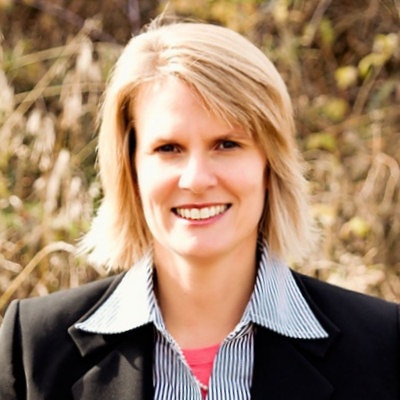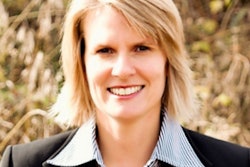
Many people think they are capable of leading others. Thankfully, these brazen types step forward and try. Their healthy egos, images of self-glory, and naivety force their hands to go up and force their feet to move forward, while others simply wonder if they should take on a leadership role.
 Lisa Knowles, DDS.
Lisa Knowles, DDS.And, that's where their capabilities stop typically. No one is really more able to lead others than anyone else at first. Leading comes with doing and experiencing real life. It comes from success stories, great decisions, and also bad times, mistakes, and failures. That's how average leaders become more capable and become great leaders.
I have been led by many leaders, watched many leaders, read about many leaders, and actually been a leader in dentistry on a number of occasions. Here are my top five lessons learned and what I help teach others in dental leadership roles:
1. Capable leaders recognize their titles mean nothing
They do not expect respect because of initials, positions, or promotions. They know others will view them as capable and worthy of their trust once they honor them, listen to them, and help them achieve their goals. This takes time and patience. These leaders realize others need to see them in action and hear them speak to patients and colleagues. They need to watch a leader's movements and see how she or he reacts under pressure. They need to see her work and trust that it's good work. Then, and only then, can they trust her and respect her.
Early in my career, I believed the magic title of "Dr." meant I was in charge and had to be in charge. To a certain extent, this was true, but mostly I just got to make my own decisions and, I have to admit, that felt good.
It felt good until I realized I was making other people unhappy. I had to get to a point where I considered others' opinions, valued consensus decision-making, and then returned to being OK with some unhappiness within the team. That sounds rather twisted, but it's actually a natural progression in personal development. Many times people say, "You will never make everyone happy," so, in the beginning, I thought that is what others meant. And, these sentiments are true. You will never make everyone happy. But, you can make more people happy than just yourself, and you can listen to other opinions and lead without being a perceived, uncaring dictator. Respect is earned, or, at the very least, confirmed with time and actions.
2. Capable leaders are resourceful
“It takes a capable leader to help the entire team find success.”
If they tell others "I don't know" too many times, the opportunity to gain trust is lost. Capable leaders are relentless in their pursuit to solve problems. Sometimes this means truly solving a given problem, and sometimes this means challenging teammates to find answers for themselves to help them grow. Capable leaders are perceptive and recognize the underlying needs of their teammates and patients.
The leaders I tap into are always full of knowledge. They seem to know a little bit about a lot of things. And, if they do not know something, they know whom to send me to for the answers. These people not only have resources in their repertoire, but they also possess a willingness to share their resources with others.
3. Capable leaders follow up and follow through
They create systems so they do not forget things or forget people.
One of my best ways to keep track of people and projects is to delegate details to others. I prefer to think in big-picture terms and work with people who love to work through some of the details to make the project fit together.
Without me, others struggle with getting things started, because they do not think broadly or as creatively, and without them, I have a hard time getting tasks completed. It's a great system I discovered I needed in my life to be more successful. No one told me this. I observed it in myself and reflected on my inefficiencies when I failed to follow through on some things. To be more successful, I needed to change and find people not like me. By creating success systems, I became more capable to serve the needs of others.
4. Capable leaders have a bag of tricks so big others come to them for help
Great leaders seem to have a wealth of knowledge. Others gravitate to their desks and seek their input because they have information. They offer unbiased opinions and offer multiple options.
Just as often, however, they simply listen to their colleagues and help them sort through their issues without even saying much. In their bag of tricks lies a barometer to help them assess people and their needs on any given day. They read people and offer them what they need and want based on their observations and assessments.
Learning to read others is an essential skill I got better at as I learned more about communication. Often, people say one thing, but they actually mean another. They reveal it with their body language or with their microcommunication -- such as minor eye movements or glances.
5. Capable leaders recognize their weaknesses and work on them
Clinical errors and judgment errors cannot be ignored. Great leaders recognize their mistakes (and listen to feedback) and correct their errors. They do not avoid, irrationally rationalize, or cover up their errors. They own them, humbly apologize, if necessary, and move forward. They rarely spend hours mulling over past mistakes. In essence, they let go and live on by accepting their weaknesses and learning from them.
Long ago, I stopped counting how many errors I have made as a boss or a leader.
Born or developed?
I am not sure if there is such a thing as a born leader. I am fairly certain leaders develop and are not naturals at first. Making mistakes with people seems harder to correct than making mistakes with tasks or products.
When we learn to ask for forgiveness and demonstrate the strength to see past our egos, we make faster progress in leading others. It's a constant learning experience, though, and cannot always be mastered like a technical skill. Leading people is ongoing and somewhat elusive -- this makes it challenging and also frustrating.
Leading in a dental office is no small task. It takes a capable leader to help the entire team find success. Without leadership, trust is difficult to establish and teams struggle to meet or exceed financial and personal goals.
As leaders in dental offices, we have to work on our leadership skills as much as we work on our technical skills. Both are essential to our success, and both make us more capable in the eyes of our patients and peers.
Lisa Knowles, DDS, is the founder and CEO of IntentionalDental Consulting. For more information, contact her at [email protected] or 517-331-3688. Visit her blog site at Beyond32Teeth.com or website at IntentionalDental.com.
The comments and observations expressed herein do not necessarily reflect the opinions of DrBicuspid.com, nor should they be construed as an endorsement or admonishment of any particular idea, vendor, or organization.



















